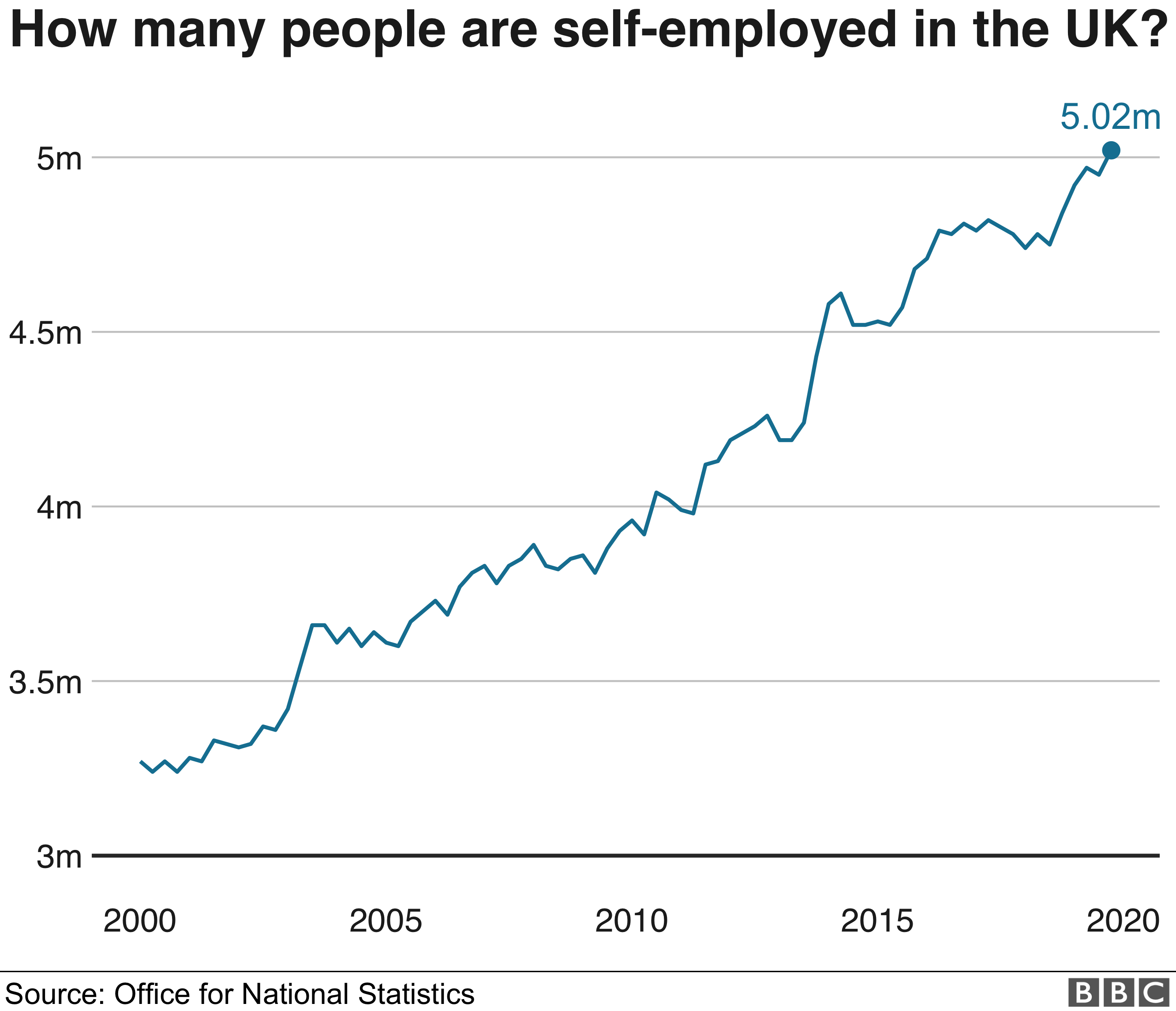
Coronavirus: What help are self-employed getting from government?
by Kevin PeacheyThe self-employed are receiving government support to cover some of the losses they face as businesses struggle in the wake of the coronavirus pandemic.
Ultimately, it may not be as generous as the scheme for furloughed workers, but it will now extend into the summer, following the latest announcement from Chancellor Rishi Sunak.
What help is there?
If they have suffered a loss in income, a taxable grant is being paid to the self-employed or partnerships, worth 80% of their profits up to a cap of £2,500 per month.
It is called the Coronavirus Self-Employment Income Support Scheme, and is open to those who were trading in the last financial year, still trading now, and planning to continue doing so this year but who confirm business has been hit by coronavirus.
Initially, this was for three months in one lump-sum payment.
In August, applications will open for a "second and final" payment, the chancellor has said, which will cover 70% of profits, up to a cap of £2,190 a month for another three months, so £6,570 in total.
This will again be made as a lump sum direct into bank accounts.
Who is eligible?
More than half of a claimant's income needs to come from self-employment.
The scheme has been open to those with a trading profit of less than £50,000 in 2018-19, or an average trading profit of less than £50,000 from 2016-17, 2017-18 and 2018-19.
Those who are recently self-employed, having set up since April 2019, will not receive any help under this scheme. This is because they will not have filed a tax return and therefore HM Revenue and Customs (HMRC) will not know of their self-employed status.
Self-employed people can apply for the first grant until 13 July, and the second from August - at a date to be set. They do not need to have received the first to apply for the second.
The government's help comes on top of a six-month delay for tax payments through the self-assessment system.
Those with the lowest incomes are in line to receive more generous benefits payments, announced previously. The chancellor said those applying for universal credit should be paid within a few days.
How do I claim the help?
The chancellor said this will cover 95% of the self-employed who make most of their money from self-employment. This is how it works:
- HMRC will use existing information to identify those eligible and invited applications
- The application requires them to confirm that they meet the eligibility requirements
- It will be paid straight into a bank account, which eligible taxpayers will need to confirm on their application form
- HMRC should have directly contacted those eligible
Those who pay themselves a salary and dividends through their own company are not covered by the scheme but will have 80% of their salary covered by the Coronavirus Job Retention Scheme if operating through PAYE.
How many people are affected?
There are more than five million self-employed people in the UK, earning an average of £781 a month. The number has risen fast since the financial crash of a decade ago. About 3.8 million of them may be covered by this scheme.
So far, 2.3 million self-employed have signed up to grants totalling £6.8bn.
Roughly a fifth of the self-employed are in the construction sector, according to the Office for National Statistics (ONS), with hundreds of thousands of others working in the motor trade, professional services, and education.

The chancellor also suggested tax breaks for the self-employed, such as lower national insurance may end in the future. These were in place because, for example, the self-employed do not get sick pay or holiday pay, and to encourage entrepreneurship.
This signals a massive change in UK tax policy, potentially equalising the tax treatment of the self-employed with employees.
How does the new help compare with salaried workers?
A plan had already been announced for those who are employed.
The government says 80% of gross wages in the private sector, up to £2,500 a month, for those not working and who would otherwise have been laid off will be covered by these grants from HM Revenue and Customs (HMRC).
These was backdated to March and the scheme has been extended to October. The idea is to prevent mass unemployment.
Employers will have to make a contribution to these payments from the summer.
The self-employment support package is slightly less generous, but the Treasury says this is because, unlike salaried worker, self-employed people are still free to operate if work is available.